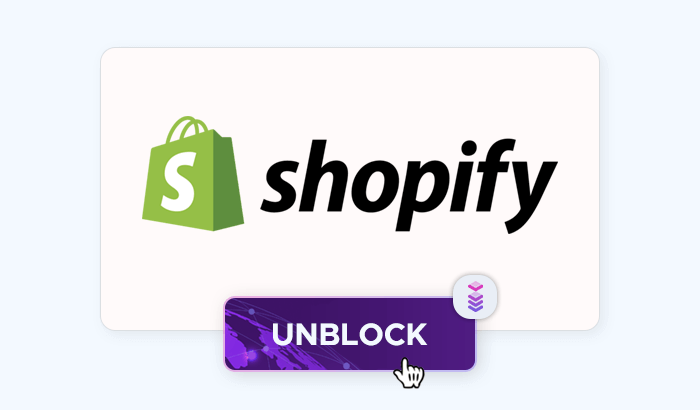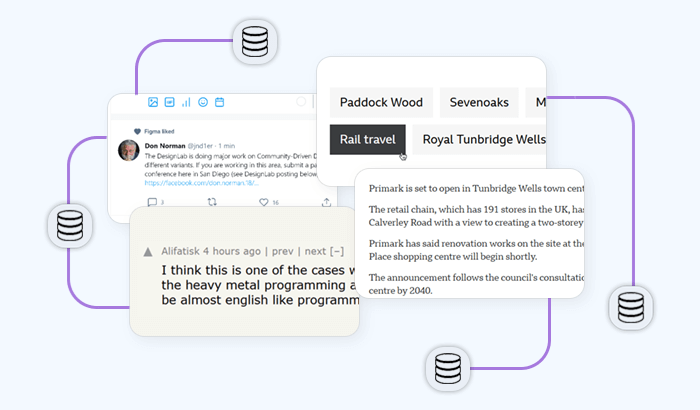

Embark on a journey through the intricate landscape of ISP and residential proxies with our comprehensive guide. Discover the main differences, advantages, and strategic applications of each proxy type to enhance your online anonymity and efficiency. This article will illuminate the subtleties of proxy technology, equipping you with the knowledge to optimize your digital endeavors.
What Are ISP Proxies?
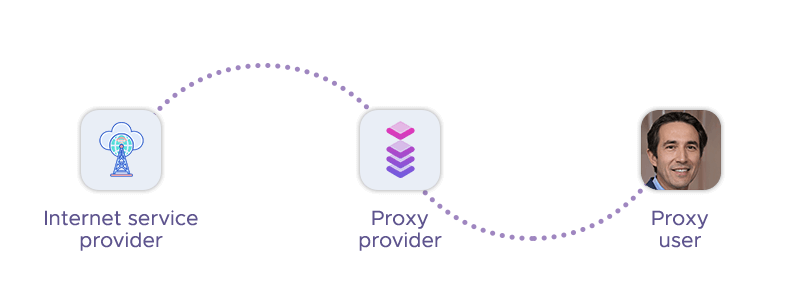
ISP proxies, also known as static residential proxies, represent a hybrid model that combines the speed of data center proxies with the undetectability of the residential type. They are intermediary servers that allow users to access the internet through their Internet Service Provider (ISP) while maintaining privacy and anonymity.
How They Work
ISP proxies operate by leveraging a pool of IP addresses owned by the ISP. When you use ISP proxy servers, your internet requests are routed through these intermediary servers. The proxy server receives your request, forwards it to the target website, and then relays the website's response back to you. This process masks your actual IP address, making your online activities appear as if they are coming from a regular residential user.
Advantages
- High Anonymity: They use real residential IP addresses, making them appear genuine and less likely to be detected or blocked.
- Exceptional Speed: ISP proxies offer fast connection speeds, which is beneficial for traffic-intensive tasks.
- Immediate Availability: Users have access to a large number of IPs on-demand, which can be particularly useful for scaling operations.
- Reliability: Being directly linked to ISPs, they tend to be more stable and reliable than other proxy types.
- Ethical Sourcing: The IPs are ethically sourced from the ISPs, ensuring legitimacy.
Disadvantages
- Cost: They are often more expensive than other types of proxies due to their advantages in speed and reliability.
- Narrow Geographic Availability: There may be fewer global locations available, which can impact location-sensitive tasks.
- Potential Risks: While they offer anonymity, there are potential risks regarding reliability and security that users must consider.
What Are Residential Proxies?
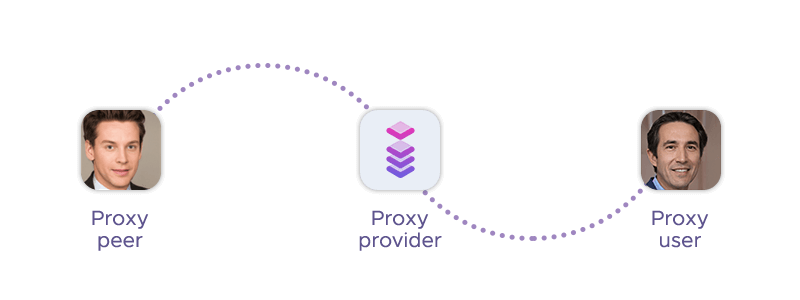
These are intermediary services that provide you with an IP address assigned by an Internet Service Provider (ISP) to a homeowner. This is in contrast to datacenter proxies, which provide IP addresses from datacenter pools.
How They Function
- Connection: You connect to the residential proxy service.
- IP Assignment: The service assigns you an IP address that belongs to a real device in a residential location.
- Traffic Routing: Your internet requests are routed through the residential IP address.
- Anonymity: To the target website, it appears as though the traffic is coming from a legitimate residential address, not your own.
- Response: The website sends the data back to the residential proxy IPs, which is then forwarded to you.
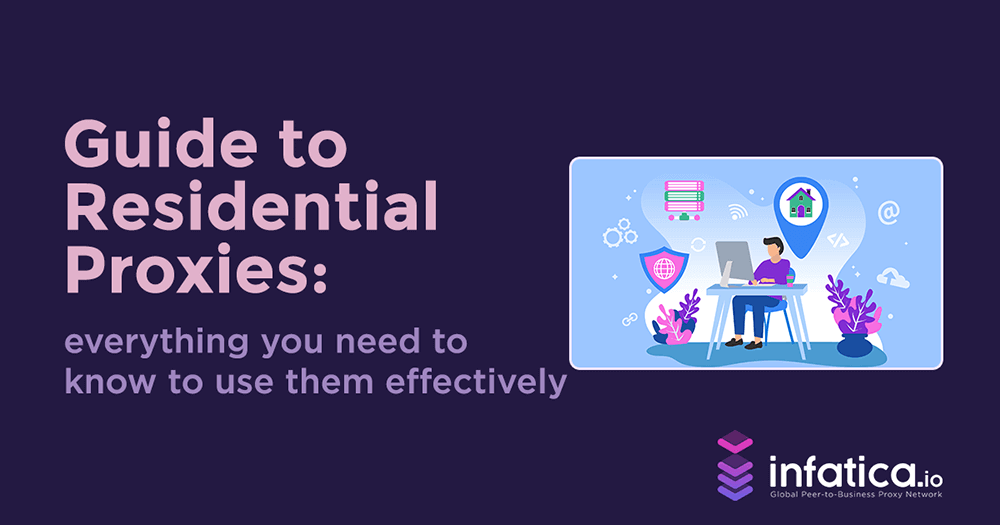
Advantages
- Authenticity: They use IP addresses from real residential internet connections, making them less likely to be flagged as proxies.
- Anonymity: Residential proxies provide a high level of anonymity, as they mask the user's actual IP address with one from a real ISP-assigned residential location.
- Accessing geo-restricted content: They can access geo restricted content, allowing access to services that are region-specific.
- Reduced Detection: Websites find it more challenging to detect and block users with residential IPs, which resemble genuine user traffic.
- IP Rotation: Some residential proxies offer IP rotation, which further reduces the risk of detection and blocking.
Disadvantages
- Cost: They are generally more expensive than other types of proxies due to the cost of acquiring and maintaining genuine residential IP addresses.
- Speed: Residential proxies may offer slower connection speeds compared to datacenter proxies because they route traffic through real residential internet connections.
- Ethical Concerns: There are potential ethical issues with how non-ethical providers acquire residential IP addresses. It's important to ensure that the IPs are ethically sourced and that the original IP owners have consented.
ISP vs Residential Proxies: Detailed Comparison
This comparison should provide a comprehensive overview of ISP and residential proxies based on the most important factors:
Source
ISP Proxies: The IP addresses come directly from the ISPs and are part of their static IP pool. These IPs are usually assigned to businesses or home users and are considered legitimate and trustworthy.
Residential Proxies: These proxies use actual IP addresses from real devices in residential locations. The IPs are assigned by ISPs to homeowners, making them indistinguishable from regular user traffic.
Speed
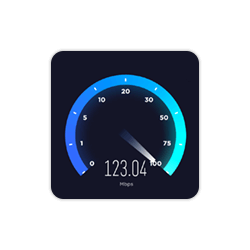
ISP Proxies: Comparing ISP proxies to residential ones, we’ll notice they are sourced from static IP pools managed by ISPs, which tend to have better infrastructure and unlimited bandwidth.
Residential Proxies: The speed can vary significantly since the IPs are from actual devices with different levels of internet quality. They may not match the consistency and speed of ISP proxy networks.
Cost

ISP Proxies: Tend to be more expensive due to their high speed and reliability. They are often favored for business applications where budget is less of a constraint.
Residential Proxies: Generally cheaper than ISP proxies, but costs can add up if you require a large number of IPs or extensive geographic coverage.
Use Cases

ISP Proxies: Ideal for activities that require fast and stable connections, such as web scraping, social media management, and online gaming.
Residential Proxies: Best suited for tasks that need high anonymity, like accessing geo-blocked content, market research, and ad verification.
Stability

ISP Proxies: Offer a high level of stability and uptime, as they are hosted in data centers with robust infrastructure.
Residential Proxies: Stability can vary since they rely on real residential internet connections, which may be less consistent.
Scalability

ISP Proxies: Easily scalable, allowing businesses to quickly adjust the number of IPs based on their needs.
Residential Proxies: Scalability is possible but may be limited by the availability of residential IPs in the desired locations.
Origin
ISP Proxies: Sourced from servers in data centers and registered with ISPs, providing a blend of datacenter and residential characteristics.
Residential Proxies: Originated from local user devices, offering IPs dynamically assigned to home internet users.
Anonymity

ISP Proxies: While they offer anonymity, they may be less anonymous than the residential type since they are associated with data centers.
Residential Proxies: Provide high anonymity as they use the same IP addresses as those of actual residential users.
Rotation

ISP Proxies: Typically offer static IPs, which do not change frequently, making them suitable for use cases that require a consistent IP.
Residential Proxies: Often feature rotating IP addresses, which provides a new IP with each connection, enhancing anonymity and reducing block risks.

Block risks

ISP Proxies: Lower risk of being blocked since they are recognized by websites as legitimate traffic from ISPs.
Residential Proxy: Also have a low block risk due to their residential nature, but some residential proxy providers may face issues if they acquire IPs unethically.
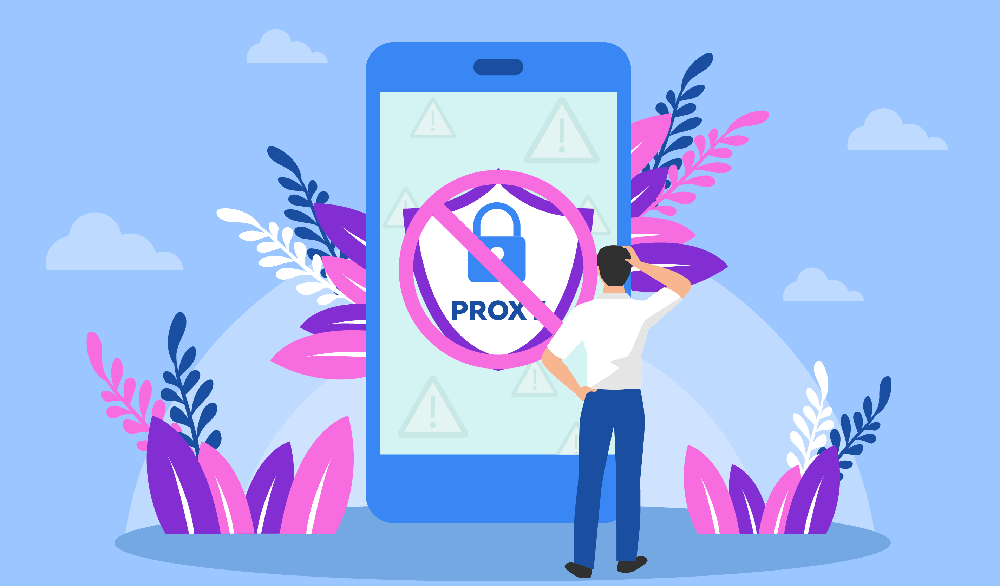
Where Can You Get Reliable ISP and Residential Proxies?
Infatica stands out as a robust option for purchasing both static residential proxies and rotating residential proxies. These features make Infatica a compelling choice for businesses and individuals looking for high-quality proxy solutions:
- Ethically-Sourced: Infatica provides proxies that are ethically-sourced, ensuring legitimacy and compliance.
- High Performance: We offer reliable performance with high uptime, suitable for tasks like web scraping and SEO monitoring.
- Anonymity and Privacy: These proxies secure web traffic with end-to-end encryption, helping to avoid detection by anti-bot systems.
- Global Access: Infatica's proxies allow users to bypass geo-restrictions, providing a wide variety of proxy locations across the globe.
- User-Friendly: The service includes an easy-to-use control panel and straightforward setup, enhancing the user experience.
- Support: Infatica offers 24/7 support to assist with configuration and troubleshooting, ensuring smooth operations.
- Maximum Uptime: Infatica guarantees a 99.9% uptime, avoiding unstable connections.
- Global IP Portfolio: They offer millions of IPs across major cities in the Americas, Europe, and Asia, facilitating global data collection.
- Avoidance of Anti-Scraping Measures: With real IPs from real users, Infatica helps proxy users avoid CAPTCHAs, IP bans, and other obstacles.
- Geo-Targeting Capabilities: Infatica provides powerful geo-targeting features, allowing for location-based data collection vital for targeting local markets.
Final Words
As we conclude, you've gained a deeper understanding of residential and ISP proxies, their unique benefits, and practical uses. Armed with this insight, you're now poised to select the ideal proxy solution that aligns with your internet needs, ensuring a seamless and secure online experience.









